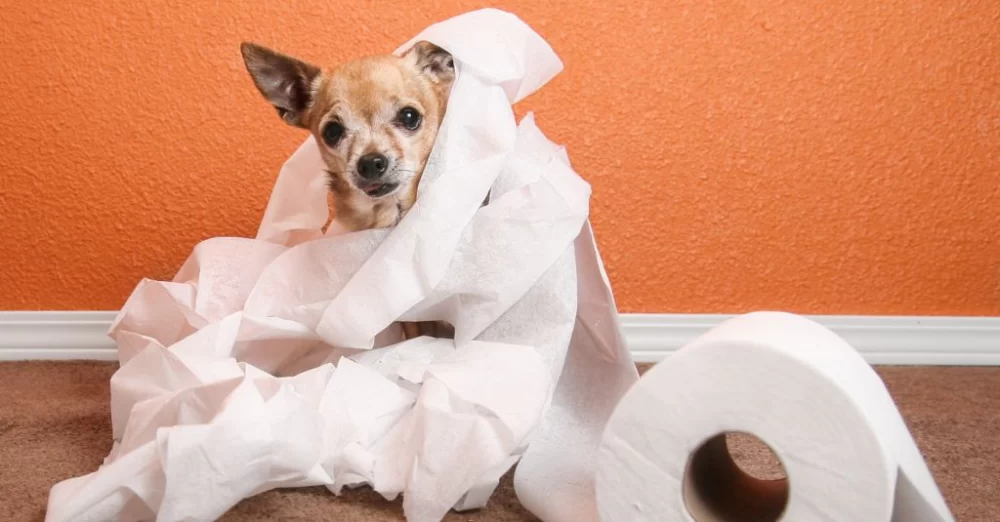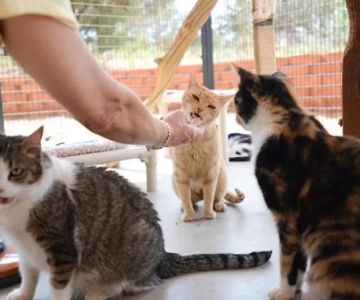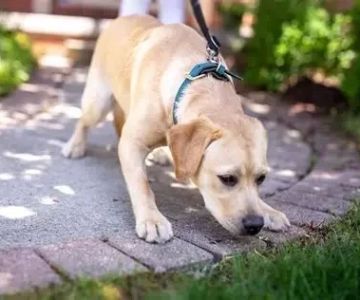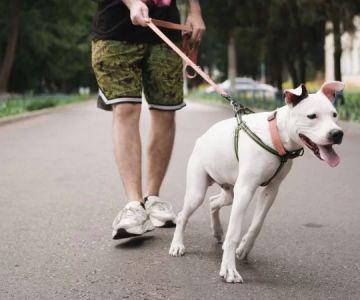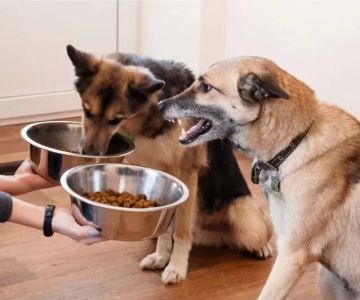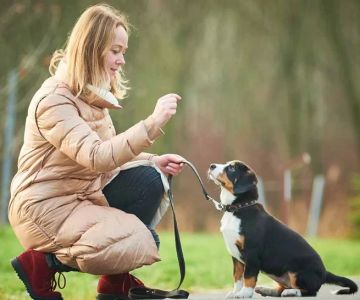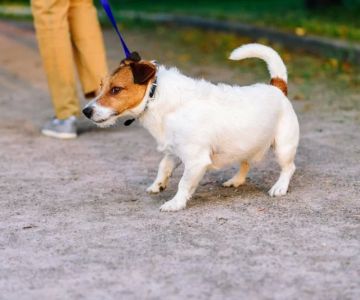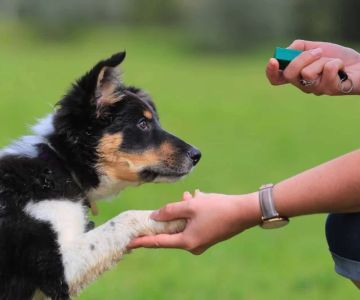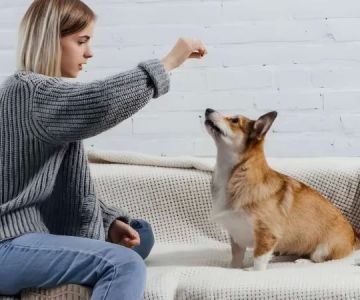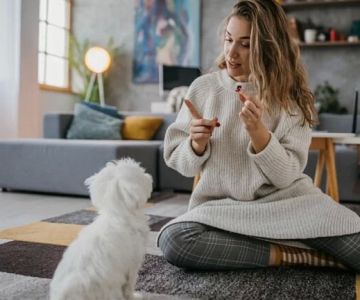Dog Pooping in the House: Causes and How to Fix It
One of the most rewarding milestones as a dog parent is successfully potty-training your new puppy. But what happens when your dog starts having accidents inside as they grow older? If your previously house-trained dog is pooping in the house, this behavior can be concerning.
While a few accidents here and there might not be a major issue, repeated pooping indoors can signal an underlying problem. Let’s explore some common reasons why dogs may begin pooping in the house and how you can address the issue.
Why Is My Dog Pooping in the House?
If your dog is consistently pooping inside, there could be a number of potential causes. These range from health-related issues to changes in your dog's environment or routine. The first step in addressing this problem is to rule out medical concerns. A visit to the vet is recommended to ensure your dog’s health is not at risk.

7389 Baltimore Annapolis Blvd, Glen Burnie, MD 21061, USA
See DetailsCommon Causes of House-Soiling
1. Intestinal Parasites
Intestinal parasites, such as worms, are a common cause of gastrointestinal upset in dogs. These parasites can lead to inflammation of the intestines, which often results in diarrhea, blood, or mucus in the stool. Dogs can contract these parasites from other animals or from contaminated environments such as dog parks or yards.
2. Food Intolerance or Allergies
Food intolerance or allergies are another potential cause of gastrointestinal issues in dogs. While less common, food allergies can lead to loose stools, excessive gas, and other digestive problems. Common allergens for dogs include beef, dairy, chicken, wheat, and lamb. If your dog is experiencing frequent gastrointestinal upset, a food allergy or intolerance might be the culprit.
3. Separation Anxiety
Separation anxiety can also lead to house-soiling. Dogs that experience anxiety when left alone may begin to defecate or urinate inside, particularly when they’re not used to being left alone for extended periods. This behavior can develop if your schedule changes, or if your dog has become more reliant on your presence. Signs of separation anxiety include destructive behavior, pacing, whining, and house soiling.
4. Fear from Noise or Outdoor Stressors
Some dogs may poop indoors due to fear or anxiety caused by loud noises or environmental stressors. This could include sounds like passing cars, thunderstorms, fireworks, or even people walking by. If your dog experiences stress outdoors, they may hold off on going potty until they return inside.
5. Distractions During Potty Time
Sometimes, dogs can become so distracted by their surroundings that they forget to focus on pottying. If your dog spends too much time sniffing around or exploring during outdoor bathroom breaks, they may not have enough time to fully relieve themselves. This could lead to accidents inside once they return home.
6. Changes in Routine
Dogs thrive on routine, and any abrupt changes to their daily schedule can trigger behavioral issues. Changes in feeding times, walk schedules, or play routines can disrupt your dog’s usual potty habits. Even a shift in the frequency of your presence at home can lead to house-soiling as your dog adjusts to the change.
7. Age-Related Issues
As dogs age, they may begin to experience physical or cognitive changes that affect their house-training abilities. Older dogs might develop conditions like canine cognitive dysfunction (similar to dementia in humans), which can result in confusion and accidents. Arthritis and other mobility issues can also make it harder for older dogs to get outside in time for bathroom breaks.
8. Diet Change
A sudden change in your dog’s diet can lead to gastrointestinal upset. Whether it’s a new brand of food, treats, or even something they’ve gotten into, any abrupt dietary shift can affect your dog’s bowel movements. A quick transition may upset the balance of the gut bacteria, leading to loose stools and potential accidents inside.
How to Stop a Dog From Pooping in the House
Whatever the underlying cause, punishing your dog for accidents is never the right approach. Yelling at your dog or rubbing their nose in their mess is not effective and can damage the bond between you and your pet. Instead, here are some strategies you can use to help prevent your dog from pooping indoors:
1. Address Health Conditions
If your dog’s pooping problem is due to a medical condition, such as intestinal parasites or food allergies, it’s important to schedule a vet appointment. Intestinal parasites can be diagnosed with a fecal test and treated with deworming medications. If food allergies are suspected, your vet may recommend a special diet or a food trial to identify the allergen.
2. Manage Separation Anxiety
If separation anxiety is causing your dog’s accidents, work with a professional to help your dog manage their stress. Desensitizing your dog to being left alone and providing enriching activities to keep them occupied while you’re gone can help alleviate anxiety-related accidents.
3. Keep Your Dog Focused During Potty Time
If your dog is distracted during outdoor bathroom breaks, try to keep them focused on the task at hand. Avoid playtime before potty time, and give your dog time to do their business before allowing them to explore. Praise and reward them once they’ve finished to reinforce the behavior.
4. Gradually Change Your Dog’s Diet
Whenever you change your dog’s food, do so gradually to avoid gastrointestinal upset. Start by mixing a small amount of the new food with the old food and gradually increase the proportion of the new food over the course of a week. This will help prevent digestive issues caused by a sudden diet change.
5. Consult Your Vet for Age-Related Issues
If your dog is showing signs of aging-related issues, such as cognitive dysfunction or arthritis, consult with your vet. Special diets, medications, and joint supplements may help your dog manage these changes. Additionally, make sure your dog’s potty area is easily accessible, especially if they are having trouble walking.
6. Clean Up Accidents Properly
If your dog has accidents in the house, clean them up thoroughly with an enzymatic cleaner. This will eliminate lingering odors and prevent your dog from returning to the same spot to soil again. Avoid using ammonia-based cleaners, as they can smell like urine to dogs and encourage marking behaviors.
Conclusion
While occasional accidents are normal, consistent pooping in the house is not something to ignore. By addressing the root cause, whether it’s a health issue, anxiety, or a change in routine, you can help your dog get back on track. Always consult with your vet to rule out medical conditions and work on behavioral strategies to resolve the issue.

